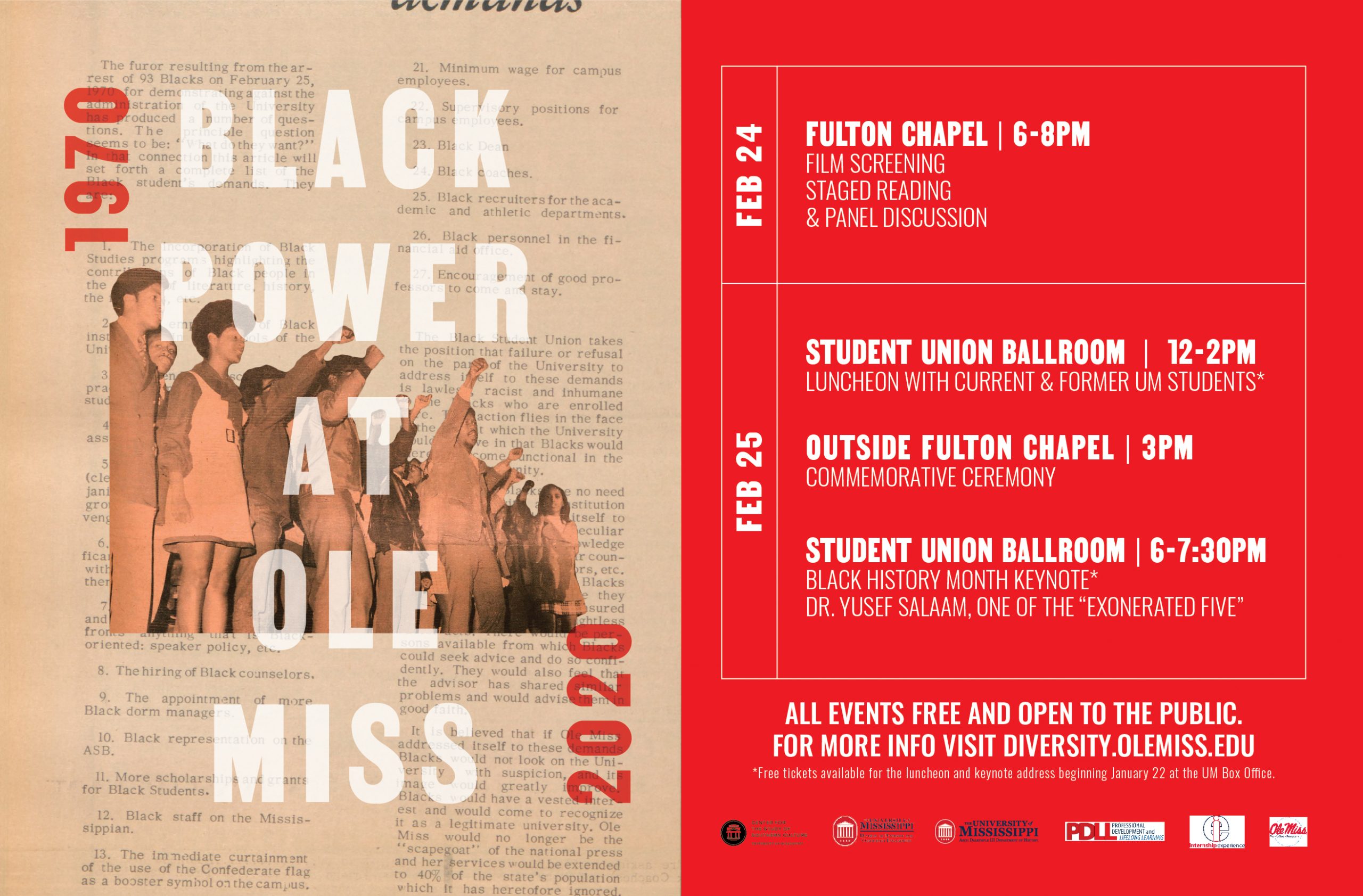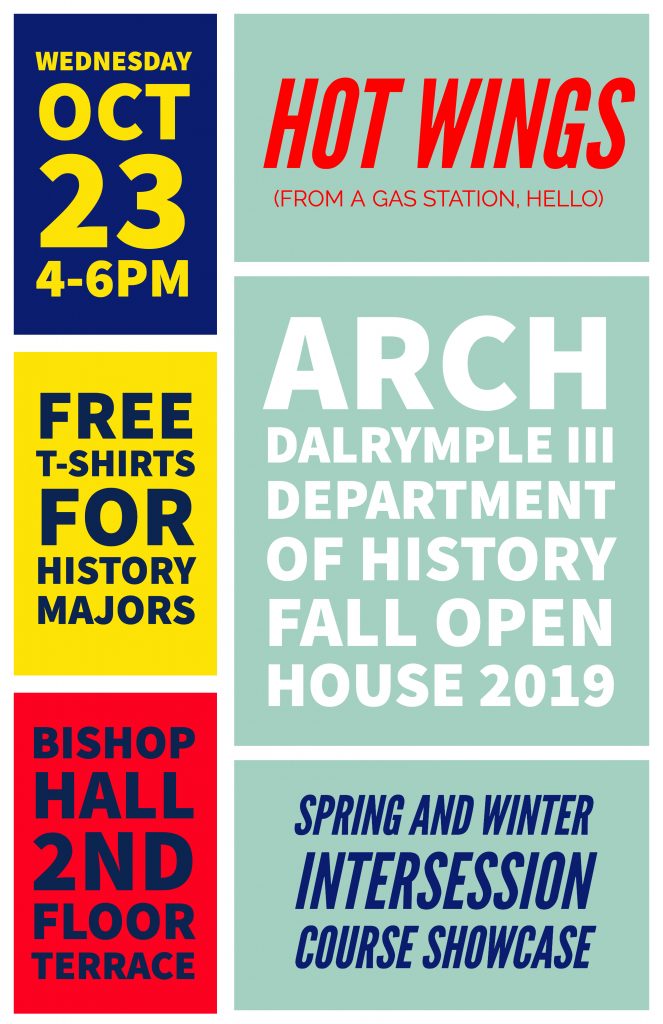Black Power at Ole Miss: Remembrance, Reckoning, and Repair at Fifty Years will commemorate the mass arrest of nearly ninety Black students – and expulsion of eight – on February 25, 1970 at Fulton Chapel. The event will remember the activism and sacrifice of students, reckon with the harm and trauma caused by the actions of the university and law enforcement, and seek reparative solutions grounded in truth-telling and justice.
On Monday, February 24, 2020, a brief documentary film screening will be followed by a staged reading of the hearings of eight students who were expelled and a panel discussion moderated by professor Ralph Eubanks (’78). February 25 will feature a luncheon with current and former students, sponsored by the BSU, Black Alumni Association, African American Studies Department and the Division of Diversity and Community Engagement. We will then gather for a ceremony at the site of the chapel arrest at 3pm.
This event is organized and coordinated by the Arch Dalrymple III Department of History and the Division of Diversity and Community Engagement with support from the Office of the Provost, The Division of Outreach: the Office of Pre-College Programs, the UM Internship Experience, the Office of Professional Development and Lifelong Learning, the College of Liberal Arts, and the Center for the Study of Southern Culture.

 The 2020 Franklin L. Riley Prize for the best undergraduate paper has been awarded to Jessica Flach for “A Fate Worse than Death: The Threat of Rape During the Civil War and the Southern White Woman’s Response.”
The 2020 Franklin L. Riley Prize for the best undergraduate paper has been awarded to Jessica Flach for “A Fate Worse than Death: The Threat of Rape During the Civil War and the Southern White Woman’s Response.”





 Click here for a complete set of course descriptions for the undergraduate courses we’re offering during spring 2020.
Click here for a complete set of course descriptions for the undergraduate courses we’re offering during spring 2020. Click here for a complete set of course descriptions for the undergraduate courses we’re offering during winter intersession 2020.
Click here for a complete set of course descriptions for the undergraduate courses we’re offering during winter intersession 2020.

